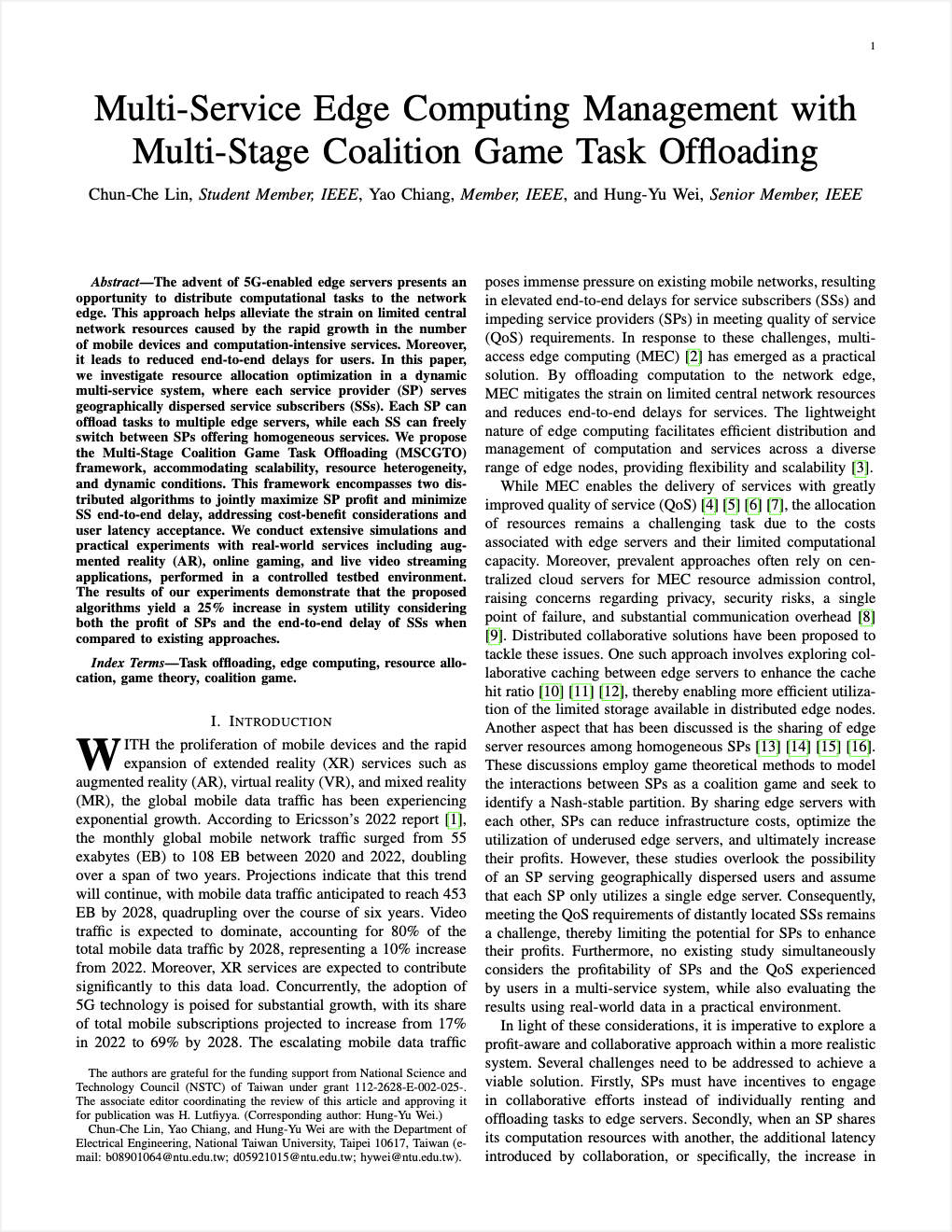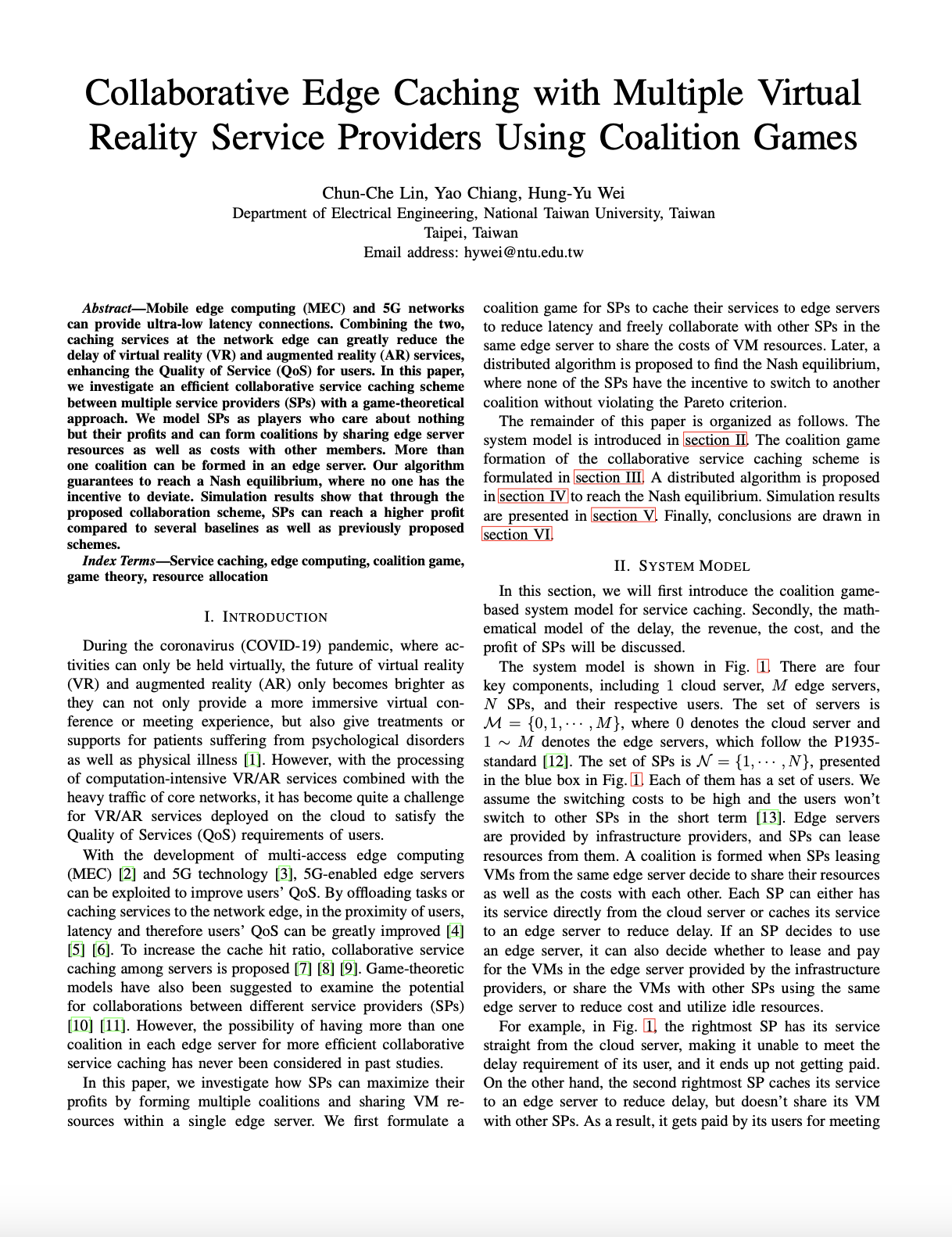I worked in the Wireless Mobile Network Lab at National Taiwan University under the guidance Prof. Hung-Yu Wei. My research mainly focused on resource allocation optimization using edge computing and game theory.

Multi-Service Edge Computing Management with Multi-Stage Coalition Game Task Offloading
Chun-Che Lin, Yao Chiang, Hung-Yu Wei
IEEE TNSM, 2024
The advent of 5G-enabled edge servers presents an opportunity to distribute computational tasks to the network edge. In this paper, we investigate resource allocation optimization in a dynamic multi-service system, where each service provider (SP) serves geographically dispersed service subscribers (SSs). Each SP can offload tasks to multiple edge servers, while each SS can freely switch between SPs offering homogeneous services. We propose the Multi-Stage Coalition Game Task Offloading (MSCGTO) framework, accommodating scalability, resource heterogeneity, and dynamic conditions. This framework encompasses two distributed algorithms to jointly maximize SP profit and minimize SS end-to-end delay, addressing cost-benefit considerations and user latency acceptance. We conduct extensive simulations and practical experiments with real-world services including augmented reality (AR), online gaming, and live video streaming applications, performed in a controlled testbed environment. The results of our experiments demonstrate that the proposed algorithms yield a 25% increase in system utility considering both the profit of SPs and the end-to-end delay of SSs when compared to existing approaches.

Collaborative Edge Caching with Multiple Virtual Reality Service Providers Using Coalition Games
Chun-Che Lin, Yao Chiang, Hung-Yu Wei
IEEE WCNC 2023 @ Glasgow, Scotland, UK
Mobile edge computing (MEC) and 5G networks can provide ultra-low latency connections. Combining the two, caching services at the network edge can greatly reduce the delay of virtual reality (VR) and augmented reality (AR) services, enhancing the Quality of Service (QoS) for users. In this paper, we investigate an efficient collaborative service caching scheme between multiple service providers (SPs) with a game-theoretical approach. We model SPs as players who care about nothing but their profits and can form coalitions by sharing edge server resources as well as costs with other members. More than one coalition can be formed in an edge server. Our algorithm guarantees to reach a Nash equilibrium, where no one has the incentive to deviate. Simulation results show that through the proposed collaboration scheme, SPs can reach a higher profit compared to several baselines as well as previously proposed schemes.
